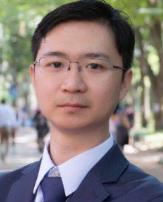Finance Seminar(2018-04)
Topic: Intellectual Property Rights and the Theory of the Innovating Firm
Speaker: Pengfei Han, University of Pennsylvania
Time: Friday, 2 February, 10:00-11:30
Location: Room 217, Guanghua Building 2
Abstract:
Stronger intellectual property rights (IPRs) induce specialization and contribute to economic growth. In the United States, a sweeping pro-patent legal reform in 1982 fostered specialization and enhanced firm performance. Around the world, countries experience faster economic growth when their innovating sectors are characterized by a higher level of specialization. An endogenous growth model with endogenous firm boundaries is developed to disentangle the relationship between legal institutions, business scope of the firms, and economic growth. Firm boundaries are identified by the number of intermediate inputs produced in-house. The production technology of every intermediate input is embodied in a patent. To perform R&D, a firm needs both the intermediate inputs based on its own patents and the inputs associated with others' patents. Each firm has two options to access to the inputs based on others' patents: it can buy their products or infringe on their patents by imitating their products. An infringer has to pay a legal settlement if it is sued and loses the lawsuit. To fend off infringement, a firm can expand its business scope and produce more intermediate inputs in-house. With stronger IPRs, the infringing problem becomes less severe, and the firm has weaker incentives to expand its business scope. Hence, stronger IPRs can induce specialization by deterring infringement. The model is matched with stylized facts of firm boundaries and patent litigation. The counterfactual analysis characterizes the optimal strength of IPRs and evaluates the actual patent law enforcement. The pro-patent legal reform in 1982 was welfare-enhancing, but it was too extreme.
Introduction:

Pengfei Han is a Ph.D. candidate in University of Pennsylvania. His main research interests are Macroeconomics, Economic Growth, Innovation, Entrepreneurship. He holds a B.A. in Economics from Tianjin Foreign Studies University. He holds a M.A. in Economics from Peking University.
Your participation is warmly welcomed!